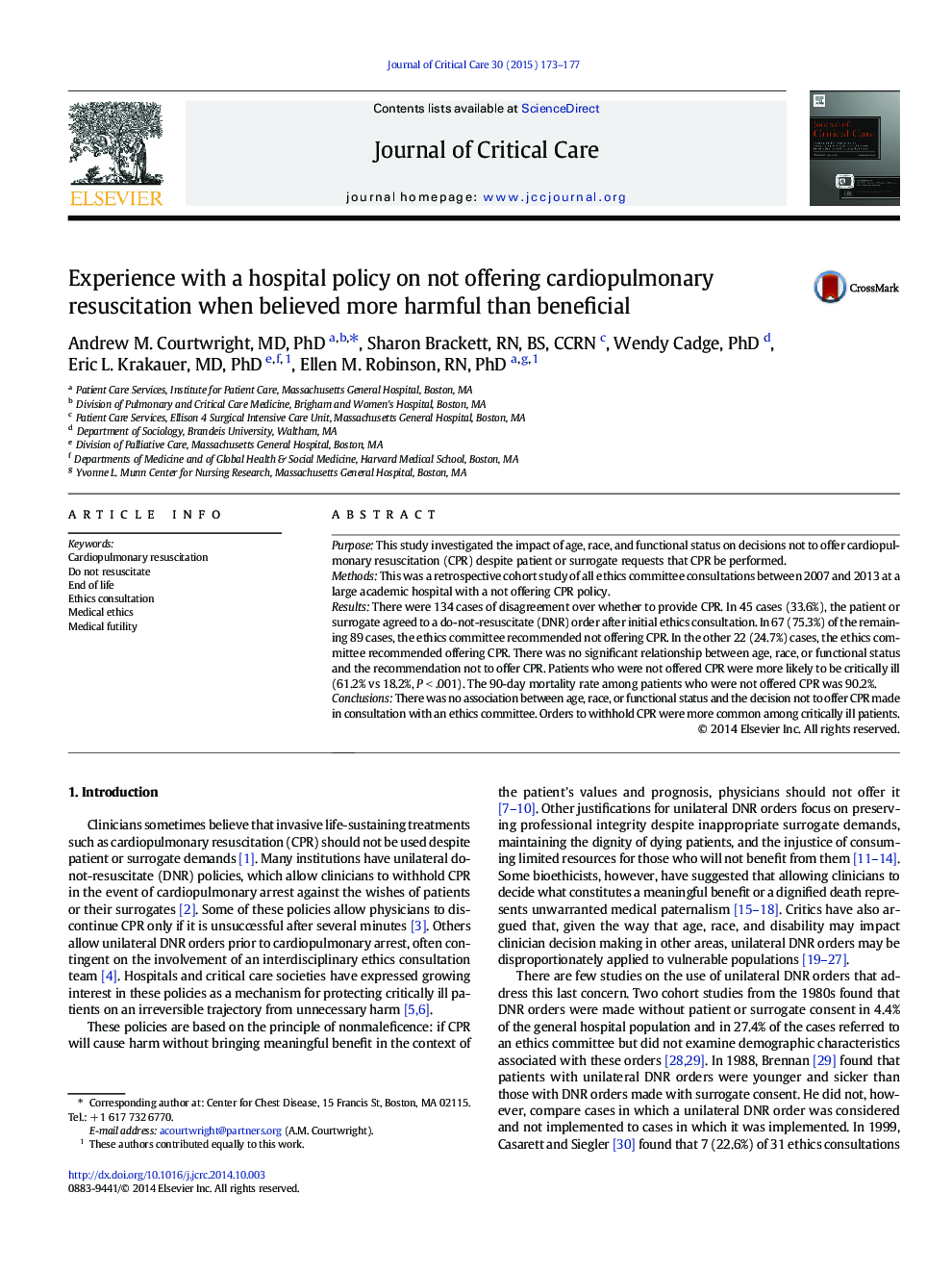| Article ID | Journal | Published Year | Pages | File Type |
|---|---|---|---|---|
| 5885674 | Journal of Critical Care | 2015 | 5 Pages |
PurposeThis study investigated the impact of age, race, and functional status on decisions not to offer cardiopulmonary resuscitation (CPR) despite patient or surrogate requests that CPR be performed.MethodsThis was a retrospective cohort study of all ethics committee consultations between 2007 and 2013 at a large academic hospital with a not offering CPR policy.ResultsThere were 134 cases of disagreement over whether to provide CPR. In 45 cases (33.6%), the patient or surrogate agreed to a do-not-resuscitate (DNR) order after initial ethics consultation. In 67 (75.3%) of the remaining 89 cases, the ethics committee recommended not offering CPR. In the other 22 (24.7%) cases, the ethics committee recommended offering CPR. There was no significant relationship between age, race, or functional status and the recommendation not to offer CPR. Patients who were not offered CPR were more likely to be critically ill (61.2% vs 18.2%, P < .001). The 90-day mortality rate among patients who were not offered CPR was 90.2%.ConclusionsThere was no association between age, race, or functional status and the decision not to offer CPR made in consultation with an ethics committee. Orders to withhold CPR were more common among critically ill patients.
